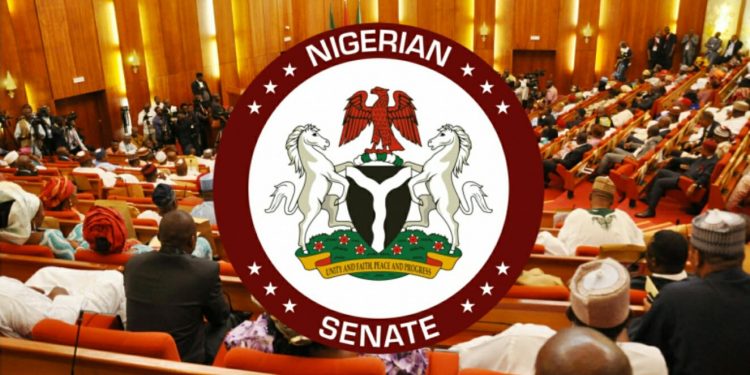
The Nigerian Senate on Tuesday granted approval to President Muhammadu Buhari to borrow a fresh loan of N850 billion to finance the 2020 budget.
President Buhari had approached the Senate seeking approval for the loan of in line with provisions of the 1999 Constitution.
The president’s request was contained in a letter read on the floor of the Senate by Senate President Ahmad Lawan.
According to Mr Buhari, the fresh loan will be sourced from the Nigerian Domestic Capital Market to assist in the funding of critical capital projects.
The 2020 budget has been adversely affected by the crisis triggered by the outbreak of the novel coronavirus, necessitating a few adjustments to reflect the current recessionary global economic environment.
Related: COVID-19: Buhari gets fresh N850 billion for budget
Mr Buhari said that in view of the state of the global economy, it was crucial to seek for the new loan from the domestic market at this time, indicating that the conditions were quite favourable.
The Senate considered Mr Buhari’s request and unanimously granted its approval.
The upper legislative chamber, however, mandated its relevant committees to liaise with the Minister of Finance, Zainab Ahmed, on the modalities for the loan.
This comes as the Senate called on the executive to quickly come forward with the revised Medium Term Expenditure Framework (MTEF) as well as the 2020 budget for approval and passage.
The Red Chamber, however, called on the executive to begin to aggressively pursue diversification and change the current structure of the Nigerian economy to cover critical areas like agriculture, health, education and infrastructure.
Meanwhile, there was drama at the federal legislative complex in Abuja as security agents barred accredited journalists from covering the activities of the National Assembly.
Journalists numbering over a hundred who arrived at the National Assembly entrance were stopped. They were also not allowed to stay anywhere close to the entrance of the complex by security agents who claimed they were under strict instructions not to allow any journalist to gain access.


















































